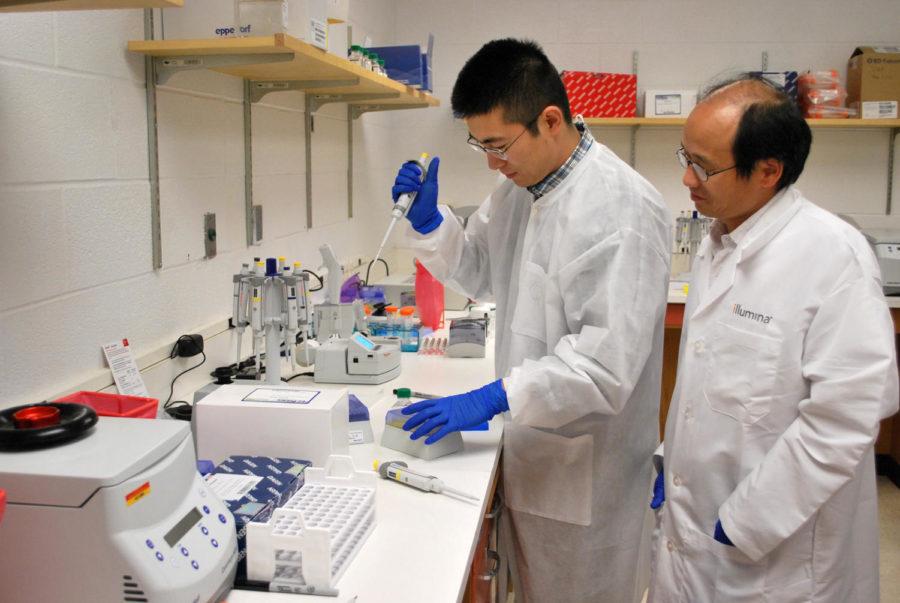ISU researchers publish study on E. coli adaptation
Graduate assistant Wentong Cai (left) says he has been working on this study with research assistant professor Ganwu Li (right) for four years now.
September 4, 2013
A team of researchers at Iowa State are studying how E. coli bacteria adapt to their environment and are on the verge of developing a new drug that might lead to treatments of certain urinary infections.
E. coli is a bacterium that can be found in certain organisms and generally colonize in the intestines of different species, most of which are warm-blooded. When this happens, it is common for the bacterium to make its way to the kidneys or bladder, potentially causing urinary tract infections.
Wentong Cai, graduate assistant-research in veterinary microbiology and preventative medicine, and Ganwu Li, research assistant professor of veterinary microbiology and preventative medicine, have found a new genetic process where certain E. coli bacteria can adapt to and work with our kidneys.
Iowa State’s team of researchers, led by Cai and Li, recently had their study’s findings published in the peer reviewed journal PLoS Pathogens.
“E. coli bacteria must adapt to survive in an environment outside of the intestines, like the bladder or the kidneys,” Cai said.
Cai also noted that the E. coli bacteria probably get this adaptive trait from a process called horizontal gene transfer. Horizontal gene transfer happens when genes are transferred between two organisms, or between an organism and its environment.
Through the adaptation that was found in the ISU professors’ research, they noticed that it was much more difficult for the E. coli bacteria to spread to the other organs of the body and therefore lessened its ability to cause diseases in the urinary tract.
Because of this, they have reason to believe that their research someday might lead to the development of a drug that will significantly decrease the likelihood of infections in the urinary tract and even infection of the kidney or bladder.
Li, has his Ph.D. from the University of Berlin, has been working with E. coli since 2003 and believes that this study could be a big breakthrough for bacterial science.
“I believe that our research will lead to new treatments for this uropathogenic E. coli that causes diseases such as meningitis in both humans and animals,” Li said. “Urinary tract infections are very serious for both humans and animals.”
The researchers involved with the study had multiple grants from different organizations to help with the funding for the research, including grants from Iowa State, the National Institutes of Health and the U.S. Department of Agriculture.
Along with Cai and Li, there were seven other authors of the research paper, including professors from the College of Veterinary Medicine and the ISU Lawrence H. Baker Center for Bioinformatics and Biological Statistics.







